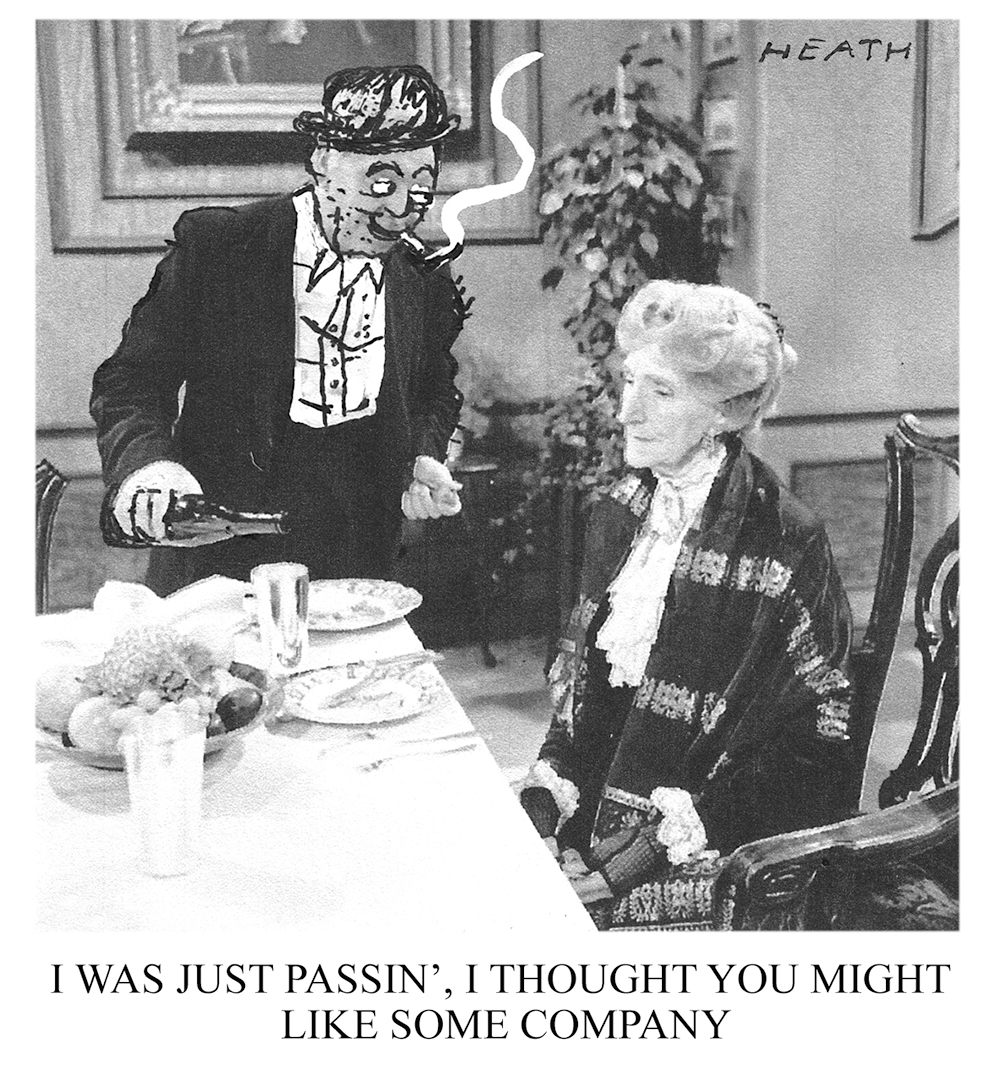
A new drinks-party-shirking method has taken hold in British society. I call it ‘Lastminute.non’.
Previously, the way of not going to someone’s party was to write a polite message of refusal at least a week in advance, giving the host or hostess ample time to absorb the sad but inevitable fact that various friends would not be able to attend – usually for copper-bottomed reasons, such as that they had other plans for the evening or would be away on holiday.
The new trend seems to be to accept an invitation, and then, mere hours before, to duck out of it. This means that from breakfast time onwards throughout the day of the party, the host will receive a steady stream of apologetic messages.
It happened to me last month, on the day of the launch of my debut novella at a London bookshop. I awoke hoping for a golden day, during which I’d bask in anticipation of seeing all my friends gathered in one place – at least, the ones who had a tick rather than a cross beside their name on the invitation list.
From 10 a.m., the Lastminute.non messages started trickling in from people who’d accepted the invitation a few weeks ago ‘with great pleasure’, ‘much looking forward to it’. One had a cold, one a cough. Another had Covid symptoms. One poor friend had a fractured ankle, and another a leaking bedroom ceiling. By 5 p.m., after these messages had pinged in at about the rate of two per hour, I was under the illusion that half of Britain must be at death’s door, such a litany had I received of ‘feeling decidedly unwell’, ‘the dreaded lurgy has hit our household’, ‘weird symptoms’, ‘sneezing, so going straight home’, and ‘far, far below the weather’.
A few said they were ‘heartbroken’. Another began with ‘alas and alack’. These piteous messages always make you feel compelled to reply with lashings of sympathy rather than mild annoyance. On receipt of each, I wrote something along the lines of: ‘Oh, poor you. I totally understand. You’ll be much missed. Hope you feel better soon.’ That was time-consuming and emotionally wearing.
Some changed their story on the day. One had pleaded the theatre in his original refusal – perfectly legitimate – but said he hoped to drop in for the first 15 minutes. He didn’t turn up – and the next day explained that he’d met up with a very old friend. Was that instead of or as well as the theatre?
Within an hour of the party starting, one guest messaged to say she couldn’t come ‘for dog-related reasons’
My feelings of disappointment turned to amusement as I waited for the next brazen excuse. Within an hour of the party starting, one messaged to say she couldn’t come after all, ‘for dog-related reasons’. Her dog was about to be dropped home by the dog–walker, who was running late due to ‘van issues’, and she needed to be in for the drop-off.
What is going on here? Are we becoming less able to face the reality of our intentions? It seems so. I’d like to give the benefit of the doubt to the majority of the hacking coughers and sneezers and the ones with temperatures – with the proviso that if the party had been a champagne reception at Claridge’s, I don’t think they would have felt quite so ill at the last minute. But some of the cancellers, I feel, never had a fixed intention of coming in the first place. They’d said ‘yes’ to seem upbeat, wanting to keep their options open, and then needed to find a way of wriggling out at the last minute, maybe because they couldn’t face the journey (or ‘schlepp’, as they might put it). They’d said ‘yes’ to an event safely in the non-immediate future that they would never have said yes to if it was happening that very evening.
That should be the test for one’s acceptances: ‘If I had to do it today, would I want to do it?’ Perhaps invitations should allow three possible answers: accept, refuse or ‘I’ll come if I feel like it on the day’. One accepter emailed on the day to say he was ‘stuck in Oxford’. Couldn’t he have foreseen that a few days in advance? It made me salute the intrepid few who managed to unstick themselves from Oxford and make it to the venue.
Lastminute.non is so easy to do by text or email. It avoids cross-examination. But if everyone sent messages like this, there would be a literal non-event. A party relies on the people who accepted turning up. As the day wore on, and the trickle threatened to turn into a flood, I worried that the whole edifice would crumble to nothing but a few crisps in a bowl. Thankfully, a great many did turn up. But I’ve been reminded how shaky an acceptance can be in today’s technologically convenient and commitment–phobic world.
Would it be better for shirkers not to announce their Lastminute.non intentions, and simply not turn up? Two no-shows thoughtfully emailed me the next morning to say they were very sorry they hadn’t been able to come, but hadn’t wanted to message me on the day, as they knew how dispiriting it was to receive such messages just before a party. I appreciated that. Their non-appearance did cause me mild anxiety, but at least I hadn’t had to write them a sympathetic email during the build-up.
The best revenge for this alarming phenomenon would be to send all those who ducked out at the last minute an invitation to an expensive treat, such as a ‘tasting menu’ dinner at a Michelin-starred restaurant in Mayfair. You would not in fact book a table for this. On the day, you would send each of them a message saying you were feeling ‘far below the weather’ and sadly had to call off the whole event.








Comments